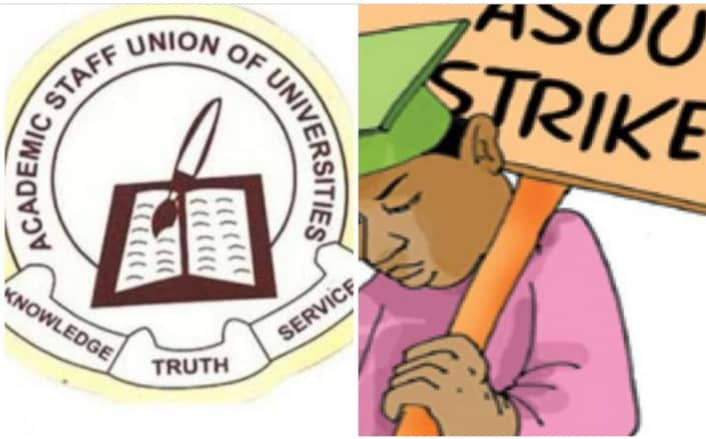In a bid to prevent an impending nationwide strike, the Federal Government and the Academic Staff Union of Universities (ASUU) engaged in a closed-door meeting at the office of the Minister of Education, Professor Tahir Mamman. The meeting is a crucial step towards addressing the lingering issues affecting Nigeria’s university system.
The Federal Government’s delegation was led by Professor Tahir Mamman, Dr. Yusuf Sununu the Minister of State Education, and other senior officials from the ministry present. ASUU’s team was headed by its president, Emmanuel Osodeke, who had an interview with some journalists before the meeting commenced.
“There are a lot of issues that are outstanding within the system, and we believe that by now, they would have been taken care of,” Osodeke stated. “The issues would have been resolved in line with the promise made by President Bola Tinubu, and there would not be a strike in the university system.”
Osodeke highlighted the union’s hope that the meeting would resolve the existing issues, allowing both the country and its university system to progress. “We hope that this meeting will be able to resolve some of these issues so that we can move forward as a country as well as our university system,” he added.
Professor Tahir Mamman, the Minister of Education, expressed how the meeting will be an opportunity for both parties to discuss the pressing issues affecting Nigeria’s universities. According to Mamman, ASUU had previously written to the ministry outlining various concerns that need to be addressed to avoid a strike.
“ASUU had earlier written to the ministry, detailing a number of issues and concerns affecting the universities and the union,” Mamman explained. “These issues require interactions between the union and government officials to avert any strike proposed by the union.”
The meeting, held in a closed-door setting, indicates the seriousness with which both parties are handling the situation. The Federal Government is bent on fulfilling the promises made to ASUU to prevent any disruption in the university system.
The issues at hand are not new but have been lingering for a while, causing dissatisfaction among the academic staff. One of these issues are funding for universities, salaries, and allowances for lecturers, and better working conditions. The resolution of these matters is important in order to maintain stability within the university system.
President Bola Tinubu’s administration has promised to address these concerns, and the ongoing meeting is proof of this commitment. The government’s approach involves having a one-to-one dialogue with the union directly to understand their grievances and work towards practical solutions.
The ASUU president’s remarks point out the union’s willingness to find a resolution through dialogue rather than resorting to a strike, which would have far-reaching consequences for students and the academic calendar. The union’s readiness to engage actively with the government is a positive sign that both parties are committed to finding a common ground.
During the meeting, it is expected that specific points of contention will be discussed in detail. These include the implementation of agreements previously reached between ASUU and the government, funding for revitalizing public universities, payment of earned academic allowances, and the adoption of a university autonomy bill.
The outcome of the meeting may have good implications for the future of higher education in Nigeria. A successful solution would not only stop the planned strike but also set a method for how such disputes are handled in the future. It would demonstrate that open dialogue and negotiation can lead to mutually beneficial outcomes.
In the past, strikes by ASUU have led to prolonged disruptions in the academic calendar, affecting students’ education and causing frustration among parents and guardians. The current effort to avert another strike is a step towards ensuring continuity and stability in the education sector.
As the meeting progresses, stakeholders within the education sector and beyond are watching closely. The hope is that both the Federal Government and ASUU will reach an agreement that addresses the union’s concerns while also taking into account the financial and administrative realities faced by the government




